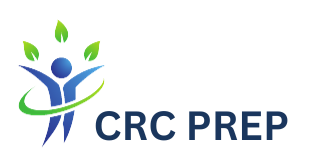Is cracking the CRC Exam crowning your to-do list? You’re not alone in the quest for conquering this pivotal milestone.
Directly inside this guide are pinpointed CRC Exam tips engineered for success, each handpicked to advance your preparation and amplify your score.
Embrace these strategies and watch as your confidence—and results—soar.
- 1. Understand the CRC Exam Structure
- 2. Prioritize Your Study Topics
- 3. Utilize Official CRC Study Materials
- 4. Develop a Robust Study Schedule
- 5. Practice with Test-Aligned Questions
- 6. Harness Effective Test-Taking Strategies
- 7. Review Ethical Standards Thoroughly
- 8. Join a Study Group or Forum
- 9. Take Care of Your Mental Health
- 10. Trust the Zero Risk Guarantee Approach
- Practice Regular Self-Assessment
- Conclusion
1. Understand the CRC Exam Structure
Embarking on your journey to become a Certified Rehabilitation Counselor (CRC) means confronting the complex CRC Exam, a pinnacle assessment in your career path. Appreciating the structure of this formidable test is a pivotal CRC Exam tip, laying the groundwork for smarter, targeted study.
Exam Fundamentals: At its core, this examination stretches over a 3 ½ hour period, demanding focus and endurance. Armed with a solid understanding of the 12 Knowledge Domains, spanning the gamut of rehabilitation counseling, you will decode the test’s framework, transforming the unknown into the familiar.
- Test Outline: Be mindful that it’s not just about grasping broad topics; instead, it’s the nuanced subtopics within domains such as ‘Employment and Career Development’ and ‘Group and Family Counseling’ that often hold the keys to success.
- Question Format: The CRC Exam predominantly comprises multiple-choice questions, necessitating strategic tackling to maximize your score.
Start by turning what appears to be an insurmountable challenge into an organized checklist of manageable tasks, incrementally conquering each topic area through diligent study.
2. Prioritize Your Study Topics
As with any quest, knowing where to focus your energy is imperative. Your preparation for the CRC Exam should reflect the weighting of the topics as outlined by the exam blueprint:
- Key Domains: Place a spotlight on subjects like Counseling Theories, a critical chapter of the exam landscape, holding an 11.3% weight. Your deep dive into these areas can significantly impact your overall score.
- Minor Topics: Nevertheless, don’t overlook less weighted, yet still pivotal, domains such as ‘Crisis and Trauma Counseling’. Comprehensive knowledge can give you an extra edge when answers aren’t immediately clear-cut.
Let this hierarchy of topics guide your study hours — allocating time in proportion to each area’s weight is a smart move that can pay dividends on exam day.
3. Utilize Official CRC Study Materials
Your success on the CRC Exam hinges upon how well you prepare, and there’s no substitute for official CRC study materials.
- CRCC Resources: Tap into the wealth of study guides and practice tests handcrafted by the experts at the Commission on Rehabilitation Counselor Certification (CRCC). These materials are designed to mirror the exam, ensuring that your study sessions are aligned with test standards.
- Real-World Scenarios: Familiarize yourself with the formats and nuances of potential questions. These official resources promise a closer simulation of the actual test environment, giving you a crucial advantage.
When your prep aligns with real CRC Exam criteria, you’ll walk into the test center armed not just with knowledge, but with the confidence of having rehearsed the battle in advance.
4. Develop a Robust Study Schedule
Constructing a robust study plan is more than just circling dates on a calendar. It’s about creating a sustainable, strategic approach to absorbing and retaining vast amounts of information.
- Start Early: Begin your study marathon with plenty of lead time, avoiding a sprint through cavernous content at the last minute.
- Study Smart: Use tools such as the CRCC’s online practice test to simulate the exam experience, getting comfortable with the pacing you’ll need to maintain.
Let this schedule become the backbone of your prep time, ensuring that each domain receives due attention without burning you out before you reach the finish line.
5. Practice with Test-Aligned Questions
Practicing with questions that are aligned with the exam’s standard goes beyond merely understanding the content; it’s about fine-tuning your approach to questions you’ll face. Here, your strategy should be twofold:
- Content Review: Concentrate on domain-specific practice, tackling multi-faceted themes from ‘Psychosocial Aspects of Chronic Illness and Disability’ to ‘Professional Orientation and Ethical Practice’, as outlined by trusted practice resources.
- Style Adaptation: Get accustomed to the CRC Exam’s question formatting and the cognitive processes you’ll need, improving not just your knowledge, but your question interpretation skills.
Regular and repeated engagement with these test-aligned questions hones your instincts, allowing you to dissect and triumph over sophisticated question formats under exam conditions.
6. Harness Effective Test-Taking Strategies
Knowing the content is one part of the puzzle; knowing how to tackle the test format is another. Cultivating effective test-taking strategies can be a game-changer:
- Answer Selection: Trust your first instinct unless new information clearly warrants a change. Overthinking can be your downfall.
- Pace Yourself: Keep a steady rhythm; don’t rush, but be vigilant about the clock to ensure you’re not leaving any questions unanswered.
- Educated Guessing: When stumped, narrow down your options and make an educated guess. Blank answers won’t score points, but a well-considered guess just might.
With these CRC Exam tips, you can approach the multiple-choice labyrinth with a calm, collected mindset that can discern the right path even in the face of tricky questions.
7. Review Ethical Standards Thoroughly
Ethical standards are the heartbeat of rehabilitation counseling, and an astute understanding of these principles is non-negotiable for your certification. The CRC Exam places a precise focus on this area, and as part of your CRC Exam tips repertoire, dedicating ample study time to this domain is crucial.
Expert Tip: Delve into the Professional Orientation and Ethical Practice realm that forms 5.3% of your exam. These questions gauge not just your knowledge but your judgment and ability to apply ethical guidelines in practical scenarios.
Actionable Steps:
- Memorize Key Codes: Learn the CRC’s Code of Professional Ethics by heart. Be able to recognize not just factoids but the overall tenor and rationale behind each standard.
- Scenario Practice: Engage with case study questions that require ethical decision-making. Practice discerning the most ethically sound pathways in complex situations.
- Reflect on Implications: Contemplate the real-world implications of ethical standards on practice. This deep reflection can aid in understanding the ‘why’ behind the ‘what,’ giving you a clearer grasp of ethical responsibilities.
The thorough review of ethical standards supports a dual purpose—it not only prepares you for questions specifically about ethics but also integrates an ethical lens into all areas of rehabilitation counseling for the CRC Exam and beyond.
8. Join a Study Group or Forum
Communal learning environments like study groups and forums are a hotbed for exchanging insights and resolving doubts collaboratively. Liaising with peers can help clarify difficult concepts, deepen your understanding, and provide moral support through the rigors of preparation.
Why Collaborate?: The dynamism of group study helps you:
- Examine Diverse Perspectives: Experience different viewpoints on complex topics, enhancing your depth of understanding.
- Engage in Healthy Debate: Solidify your grasp on subjects as you discuss and defend your reasoning among peers.
- Leverage Collective Knowledge: Tap into the group’s shared resources, study notes, and tricks that could be your ace in the hole.
Remember, a well-chosen study group does more than just help you study; it builds a community that sees you through the highs and lows of your CRC Exam journey.
9. Take Care of Your Mental Health
Among all the CRC Exam tips, perhaps the most overlooked yet vital is caring for your mental well-being. Your brain is your most valuable asset during this period, and nurturing your mental health is imperative.
Here are some ways to maintain balance:
- Scheduled Breaks: Regular intervals of rest prevent burnout and keep your mind fresh.
- Physical Exercise: Incorporating physical activity can reduce stress and increase your cognitive function.
- Mindfulness Practices: Techniques such as meditation or deep-breathing exercises can improve concentration and alleviate anxiety.
These strategies not only aid in maintaining mental sharpness but are essential for sustaining resilience throughout the marathon of studying for the CRC Exam.
10. Trust the Zero Risk Guarantee Approach
In selecting prep courses for your CRC Exam preparation, consider those that offer what many dub a Zero Risk Guarantee. This approach ensures repeated access to course materials at no extra cost if you don’t pass on your first try.
The Promise:
- Financial Security: Invest once and rest assured that your resources will be available until success is achieved.
- Commitment to Quality: This assurance is a testament to the quality and confidence providers have in their material.
- Peace of Mind: Remove the fear of additional expense if a re-test is needed, allowing you to focus solely on your studies.
When your prep tools come with a promise of support until the finish line, it bolsters confidence—your success is their success.
Practice Regular Self-Assessment
Assessing where you stand in your CRC Exam preparation can illuminate the pathway ahead. Regular self-evaluation through accustomed practice tests or quizzes can provide a realistic gauge of your readiness and pinpoint areas needing polish.
Self-Assessment Advantages:
- Spot Knowledge Gaps: Clarify which topics require more attention or a fresh approach to learning.
- Build Test Endurance: Grow accustomed to the length and intensity of the actual exam while practicing within a set time limit.
- Track Progress: Gain an empirical understanding of improvement over time, reinforcing your study techniques or prompting beneficial changes.
Self-assessment is not a luxury; it’s an integral part of any smart CRC Exam strategy, offering you a clear-eyed view of your abilities and setting the stage for targeted improvements.
Conclusion
In training for the CRC Exam, it’s the tactical, measured steps that can escalate your chances of success. Whether it’s the foundational knowledge of exam structure, the pragmatic wisdom of mental health care, or the security of a Zero Risk Guarantee, each of these CRC Exam tips is a critically selected strategy to enhance your study and performance.
So, gear up with these insights, rally your resources, and embark on your CRC Exam journey. With hard work and these expert guidelines at your helm, approach your exam with unwavering confidence and a readiness to join the proud ranks of Certified Rehabilitation Counselors.
CRC Exam tips to excel: Expert strategies, focused study plans, and practice techniques to significantly boost your exam score.

